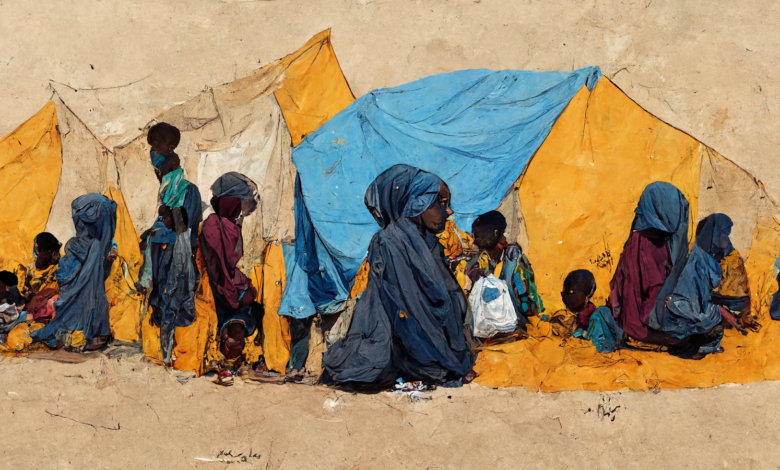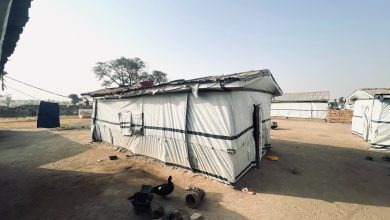#WorldFoodDay: Gender Inequality Worsening Women’s Lack Of Food Availability, Access
As the world marks ‘World Food Day’ spotlighting the millions of people who do not have access to healthy diets and regular availability of food, HumAngle reflects on women’s vulnerability in all dimensions of food security.

Women often go hungry so their families can eat, especially those confronted by conflict and dire humanitarian situations, according to a World Food Program (WFP) report.
Women eat “last and least” the report says, in order to save their families.
This trend, coupled with factors such as discrimination, inequality, and gender-based violence, has worsened women’s availability and access to nutritious food.
Currently, Nigeria ranks 103 on the 2022 Global Hunger Index (GHI), which revealed that conflict, climate change, and the COVID-19 pandemic have pushed millions of people to experience food price shocks while others do not have access to food altogether.
According to the Index, Nigeria is among countries facing ‘serious’ levels of hunger, it also noted that hunger levels had jumped by 20 per cent between 2020 and 2021.
As the globe celebrates World Food Day to spotlight the millions of people who do not have access to healthy diets and regularly available food with the theme ‘Leave No One Behind’, HumAngle reflects on women’s vulnerability in all dimensions of food security.
The gaps
The food security gap between men and women has been in a steady decline since 2018, with women 8.4 times less likely to have regular access to nutritious food. According to a report published by Care International, of the estimated 828 million people affected by hunger in 2021, 59 per cent (three in five) were women.
That is approximately 150 million more women facing food insecurity than men globally.
In developing countries such as Nigeria, the prevalence of discriminatory practices, violence against women and girls, and gender inequality has worsened hunger, malnutrition, and food security. Preconceived notions towards women, such as the task of child care, even during periods of conflict and humanitarian crises, and the responsibility of caring for older members of the family can result in women reducing their food intake to save for others.
Another reason why this gap persists is women’s tendency to be in lower economic status than men, and this further limits their access to nutritious food. A HumAngle report also showed that although international development projects in Nigeria are increasing, funding targeting women’s economic empowerment has remained the same since 2015.
Distribution discrimination
Women living in conflict settings and facing humanitarian crises have it worse. In the northeast, the Boko Haram insurgency has displaced thousands of people and escalated the levels of hunger and food insecurity, however, internally displaced women witness disproportionate hunger levels due to discriminatory practices with food distributions.
Before displacement camps were closed in Maiduguri, the capital city of Borno state, women in Dalori II camp alleged being sidelined by camp officials who distributed food and non-food items to only male-headed households.
Ali Hadiza, a mother of four children, told HumAngle that despite having a food e-voucher provided by the World Food Program’s (WFP) cash assistance program that entitles them to N17,500 cash monthly, the camp officials preferred to put women with husbands over single mothers.
Women and girls are also more likely to face sexual exploitation before they have access to food or to get money for food. HumAngle has reported how young IDPs are sexually assaulted by officials before they are given relief materials.
Last year, the Borno state government announced a ban on the distribution of relief items to camps as it prepares to resettle IDPs back to their home towns, listing the prevalence of sex for food as a factor for the camps’ closure. However, in September, IDPs in Gubio camp, also in Maiduguri, who have not been resettled continue to face hunger, pushing displaced women into survival sex with the town’s residents.
Malnutrition
Médecins Sans Frontières/Doctors Without Borders (MSF) has warned against catastrophic levels of malnutrition, especially in the northwestern part of Nigeria where armed violence, kidnapping and terrorism hold sway.
According to a report by Integrated Food Security Phase Classification, nearly 614,000 severe acute malnutrition (SAM) cases and over one million moderate acute malnutrition (MAM) cases have been recorded between August and September, and over 151,000 pregnant and lactating women will likely be acutely malnourished and are in need of nutrition interventions.
In May, The Federal Ministry of Agriculture and Rural Development (FMARD) also disclosed that Nigeria accounts for about 68 per cent of anaemic pregnant women due to the level of malnutrition in the country.
Leave no one behind
The United Nations Food and Agricultural Organisation (FAO) states that the theme ‘leave no one behind’ is a call to action for governments, UN agencies, and other actors to ensure human rights to food.
“Governments and the international community need to provide immediate support to the most vulnerable by increasing funding for emergency food aid,” the organisation states. “Other influential actors, such as the International Monetary Fund, World Bank, and creditor nations should not exacerbate the crisis by pushing countries to implement austerity measures in Covid-19 economic recovery plans.”
It noted that access to adequate food is an essential human right. Increasing funding for social protection and guaranteeing the availability of affordable food is key to ensuring that no one is truly left behind.
Support Our Journalism
There are millions of ordinary people affected by conflict in Africa whose stories are missing in the mainstream media. HumAngle is determined to tell those challenging and under-reported stories, hoping that the people impacted by these conflicts will find the safety and security they deserve.
To ensure that we continue to provide public service coverage, we have a small favour to ask you. We want you to be part of our journalistic endeavour by contributing a token to us.
Your donation will further promote a robust, free, and independent media.
Donate HereStay Closer To The Stories That Matter




